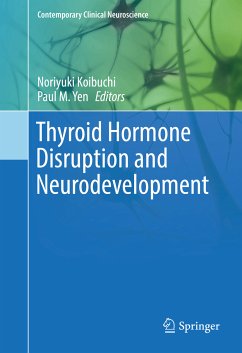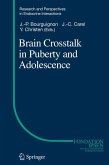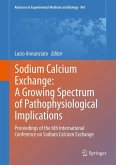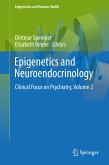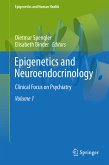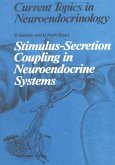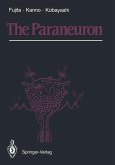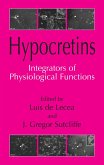Thyroid hormone plays an important role in development and functional maintenance in the central nervous system. Deficiency of thyroid hormone during fetal and early postnatal life induces abnormal development known as cretinism in humans. However, the molecular mechanism of thyroid hormone action has not yet been fully understood. Thyroid hormone action in the brain may be disrupted under various pathological conditions. In addition, environmental factors including endocrine-disrupting chemicals and bacterial endotoxins may disrupt thyroid hormone action in brain, causing abnormal brain development and functional disruption. This is a first book to comprehensively describe the effect of thyroid hormone disruption in the central nervous system. The first section deals with the disruption of thyroid hormone action at the molecular level. First the authors provide a summary of the possible molecular mechanisms of thyroid hormone action in the brain, then they discuss several factors that may disrupt thyroid hormone action. In the second section, animal models to study thyroid hormone action will be introduced. An interesting character of thyroid hormone deficiency is that, without thyroid hormone, the thyroid hormone receptor may act as a "repressor" of gene expression, causing more severe consequence than those of thyroid hormone receptor knockout animals. Thus, several different kind of animal models may be used to clarify the role of thyroid hormone and its receptor in the brain. In the third section, human studies on thyroid disease and neurodevelopment will be introduced. Although endemic cretinism induced by iodine deficiency and sporadic cretinism by various thyroid mutation are well known, the pathophysiological mechanisms that create each abnormal phenotype are not fully understood. ¿
Dieser Download kann aus rechtlichen Gründen nur mit Rechnungsadresse in A, B, BG, CY, CZ, D, DK, EW, E, FIN, F, GR, HR, H, IRL, I, LT, L, LR, M, NL, PL, P, R, S, SLO, SK ausgeliefert werden.

